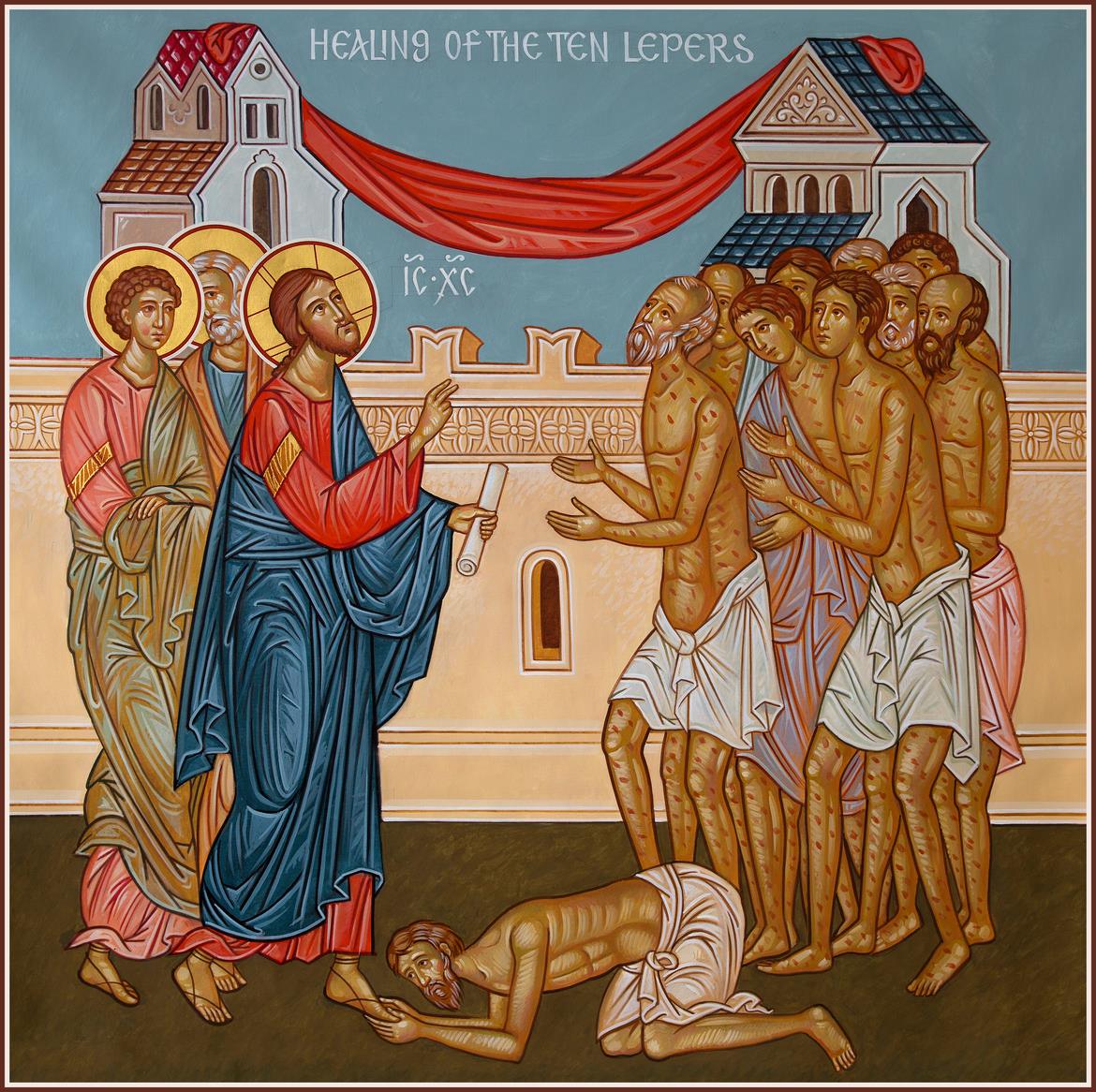 Read: Colossians 3:12-16; Luke 17:12-19
Read: Colossians 3:12-16; Luke 17:12-19
“And let the peace of Christ control your hearts, the peace into which you were also called in one body. And be thankful” (Colossians 3:15).
“And one of them, realizing he had been healed, returned, glorifying God in a loud voice; and he fell at the feet of Jesus and thanked him. He was a Samaritan. Jesus said in reply, “Ten were cleansed, were they not? Where are the other nine? Has none but this foreigner returned to give thanks to God?” (Luke 17:15-18).
This Sunday comes between two great feasts: thanksgiving and Christmas. On Thanksgiving we feed ourselves with the bounties of God’s creation, and, hopefully, thank him for these blessings, because, as we pray in the common Ambon Prayer, “you are the giver of every perfect gift.” On the coming feast of Christmas, we are already thinking of what gifts we can give to each other, and parents will teach their children to give thanks to everyone who gives them a gift. The word for gift in Greek is “eucharist,” which means “to really show favor to another.” If someone shows favor to us, it is humanly natural and normal for us to show favor in return according to our means. Jesus comments the even sinners do good to those who do good to them (Luke 6:33). Of course, sometimes that doesn’t happen and we call that a betrayal. On Christmas, God is the one who shows the greatest favor, as the angels sang at his birth, ““Glory to God in the highest and on earth peace to those on whom his favor rests” (Luke 2:14). This gift is God’s only Son, whom the Father gave to the world “so that everyone who believes in him might not perish but might have eternal life” (John 3:16).
This is so important that we repeat this passage from Scripture in every Divine Liturgy of St. John Chrysostom. This gift is also the gift of peace, for St. Paul tells us that Christ is the peace of God, “For he is our peace, he who made both one and broke down the dividing wall of enmity, through his flesh, abolishing the law with its commandments and legal claims, that he might create in himself one new person in place of the two, thus establishing peace” (Ephesians 2:14-15). For this, like the healed leper, we must give thanks to God. But if God shows us this great favor, “what,” as the psalmist says, “can I return to the Lord for all he has given me?” (Psalm 115:3). God has no need of anything that we can give him. What we can give him is our sacrifice of praise, our words of glorification. We are like the little drummer boy in the popular Christmas sing, “I played my best for him.” Precisely in receiving God’s gift of love and peace, we are ourselves transformed into God’s love and peace, so that St. Paul tells us in today’s epistle,. “let the peace of Christ control your hearts,” so that we can “put on then, heartfelt compassion, kindness, humility, gentleness, and patience, bearing with one another and forgiving one another” (Colossians 3:12-13). To do this would be our Christmas thanksgiving.
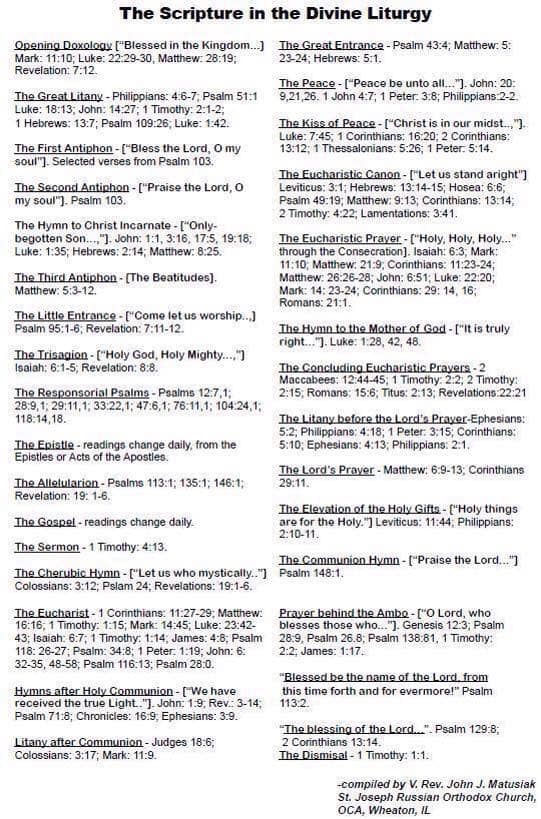
 On this Sunday, we commemorate three men who had a relationship with Jesus: David, his forefather; Joseph, his foster father; and James, his brother through Joseph. Each of these man were shown mercy by God. David committed a great sin, to win the wife of Uriah, he had Uriah put into the front lines of battle, so that he was killed. The prophet Nathan brought this sin to light and David did repentance and lost his son. Joseph found Mary pregnant and decided to divorce her, but an angel told him to take her as his wife. James was among Jesus’ relatives who did not accept him as a prophet, but after the resurrection, he repented and became the leader of the church at Jerusalem.
On this Sunday, we commemorate three men who had a relationship with Jesus: David, his forefather; Joseph, his foster father; and James, his brother through Joseph. Each of these man were shown mercy by God. David committed a great sin, to win the wife of Uriah, he had Uriah put into the front lines of battle, so that he was killed. The prophet Nathan brought this sin to light and David did repentance and lost his son. Joseph found Mary pregnant and decided to divorce her, but an angel told him to take her as his wife. James was among Jesus’ relatives who did not accept him as a prophet, but after the resurrection, he repented and became the leader of the church at Jerusalem.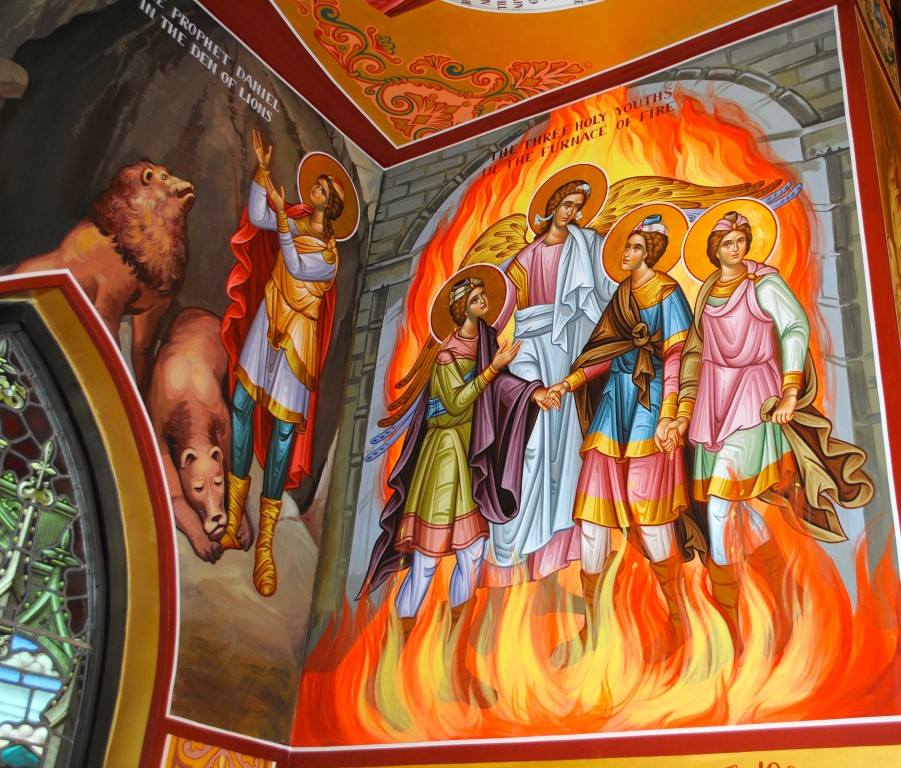 The Byzantine liturgical calendar of the Ukrainian Church has given us today the feast of The Three Holy Children. The feast day commemorates a most fascinating event (experience) of people of faith in the face of evil.
The Byzantine liturgical calendar of the Ukrainian Church has given us today the feast of The Three Holy Children. The feast day commemorates a most fascinating event (experience) of people of faith in the face of evil.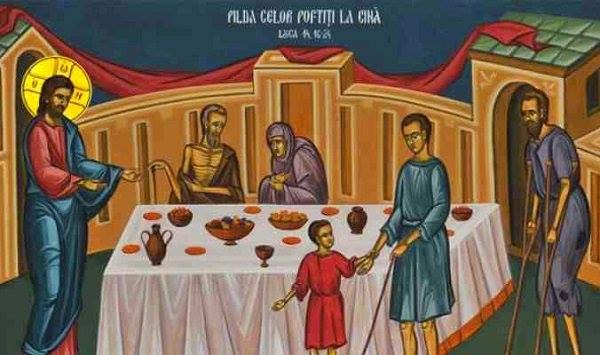 In Colossians 3:4 we read: “When Christ who is our life appears, then you also will appear with him in glory.”
In Colossians 3:4 we read: “When Christ who is our life appears, then you also will appear with him in glory.” Read: Colossians 3:12-16; Luke 17:12-19
Read: Colossians 3:12-16; Luke 17:12-19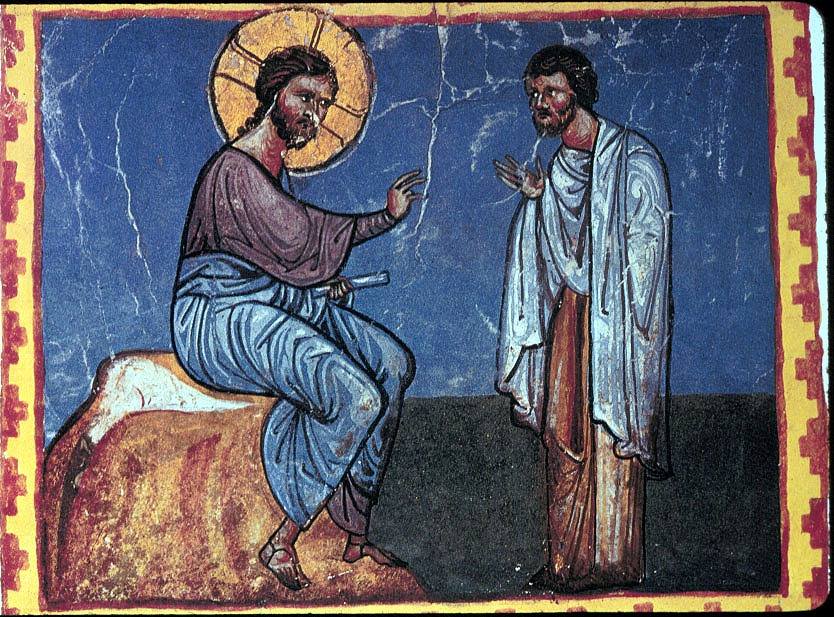 Read: Colossians 1:12-18; Luke 18:18-27
Read: Colossians 1:12-18; Luke 18:18-27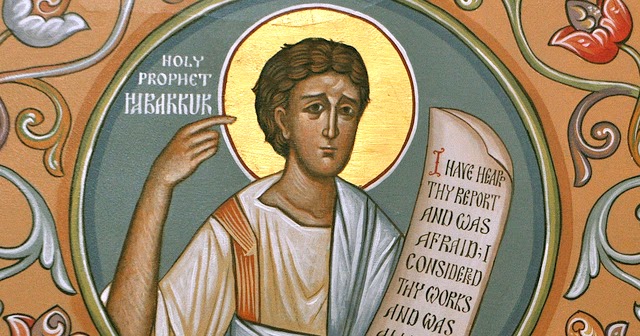 Today is the feast of the Holy Prophet Habakkuk. As you know, the Byzantine Church pays more attention, liturgically speaking, to the Old Testament prophets.
Today is the feast of the Holy Prophet Habakkuk. As you know, the Byzantine Church pays more attention, liturgically speaking, to the Old Testament prophets.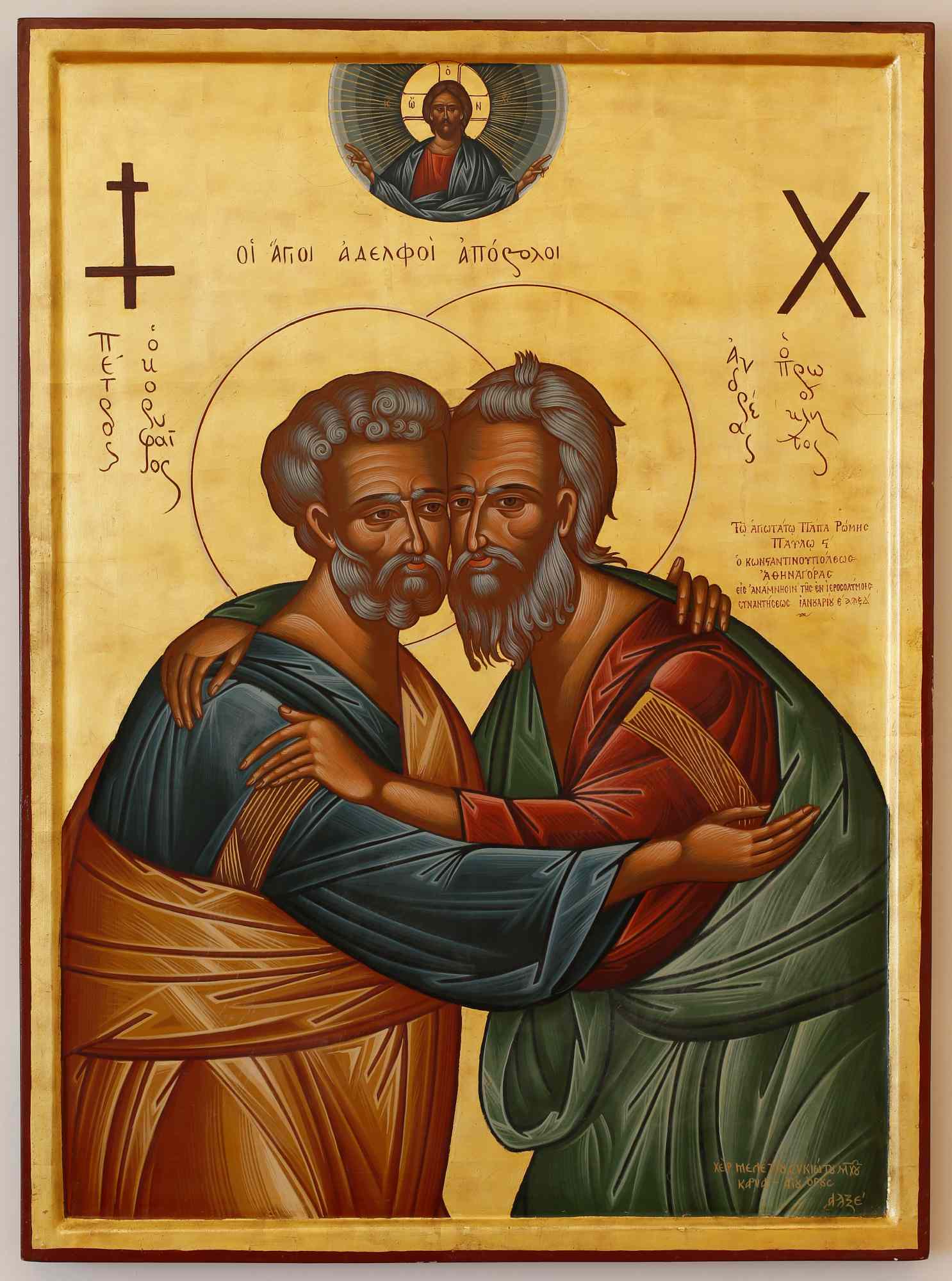 It is a legend, but also a symbol, that St. Andrew evangelized the town of Byzantium before it would become a great city. The symbol, therefore, is that Rome, the West, and Constantinople (Byzantium), the East are united in the fraternity of the two apostles, Peter and Paul. In our broken world, the Church is hampered in preaching the gospel by internal divisions. The Catholic and Orthodox Churches are heroically trying to re-unite to preach the one true Gospel of our Lord Jesus Christ. They are hampered by narrow-minded people in both Churches, who cannot see Christ living in the eucharist of these Churches. There is only one Christ in Holy Communion, and we do not partake of one Christ, and the other another Christ. There is only one Christ born of Mary in Bethlehem, whose Body we cannot divide. Now is the proper time for the one Church to proclaim the one Lord and Savior in the one holy Gospel. We must pray for unity this Christmas that we are not too late.
It is a legend, but also a symbol, that St. Andrew evangelized the town of Byzantium before it would become a great city. The symbol, therefore, is that Rome, the West, and Constantinople (Byzantium), the East are united in the fraternity of the two apostles, Peter and Paul. In our broken world, the Church is hampered in preaching the gospel by internal divisions. The Catholic and Orthodox Churches are heroically trying to re-unite to preach the one true Gospel of our Lord Jesus Christ. They are hampered by narrow-minded people in both Churches, who cannot see Christ living in the eucharist of these Churches. There is only one Christ in Holy Communion, and we do not partake of one Christ, and the other another Christ. There is only one Christ born of Mary in Bethlehem, whose Body we cannot divide. Now is the proper time for the one Church to proclaim the one Lord and Savior in the one holy Gospel. We must pray for unity this Christmas that we are not too late.